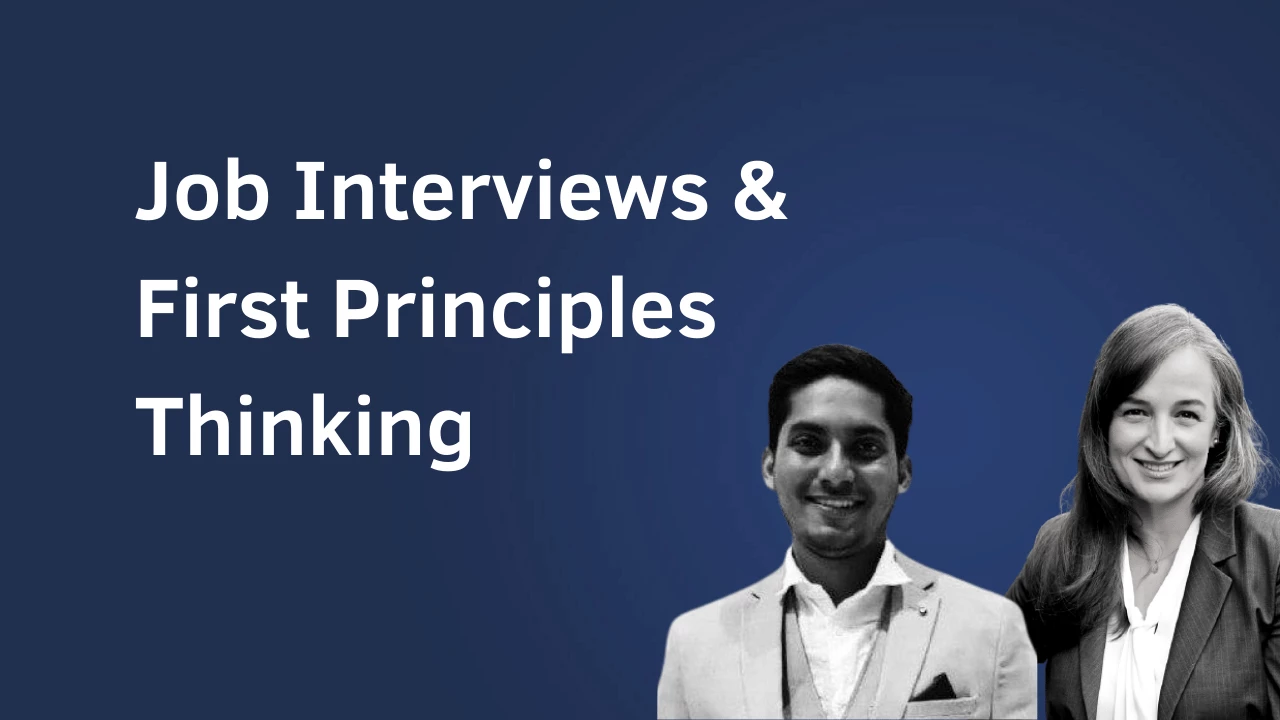Episode 136 - Simple Ideas to Help You Prepare for Online Job Interviews, with Abhishek Kaushik

Abhishek Kaushik is the CEO & Co-Founder of WeCP, a one-of-a-kind tech screening platform that helps recruiters and hiring managers to evaluate developers faster and more efficiently.
Abhishek aims to make the hiring process straightforward and efficient by adding a skill test to the tech recruitment process. Abhishek has reduced the total time to hire for most of their clients by 90% or more by implementing these ideas.
In this episode, we chat with Abhishek about:
The Future of Tech Recruitment: If you have been job hunting recently, you know that you cannot avoid technology anymore in the recruitment process. At every executive and professional level, it's all-encompassing.
How you can use "First Principles" and creative thinking to help you prepare for job interviews and help solve work problems.
What the future will look like for recruitment and selection of candidates.
About our guest, Abhishek Kaushik
In 2015, Abhishek and his co-founder wanted to test an idea that emerged from a random Chai chat in a college cafeteria. They created their first screening platform as the nerds they were, obsessed over coding challenges. By 2018, they had honed in on their product — an award-winning library of questions, compilers, and the ability to hire at scale attracted enterprise names.
Skip forward to today, and WeCP stands as a one-of-its-kind tech screening platform helping recruiters and hiring managers worldwide evaluate developers faster and with utmost efficiency. WeCP has been recognized as the "Top 4 Startup in India" by Startup Nexus, IC^2 in 2017, "Emerging Startups" by K-Startup World Grand Challenge in 2018, and "Top SaaS Startups" by Upekkha Catalyst- in 2019. WeCP is the Momentum Leader and Top Performer in the Technical Skills Screening Software category on G2.
You can connect with Abhishek:
On LinkedIn: Abhishek Kaushik
Website: We Create Problems (WeCP)
Resources mentioned in this episode
Article about first principles: Elon Musks' "3-Step" First Principles Thinking: How to Think and Solve Difficult Problems Like a Genius by Mayo Oshin.
Take it a step further and listen to this episode about Bayes' theorem - when to use it and when not to use it - which is a tool for analysis of first principles: The Jolly Swagman Podcast Episode 139: Against Bayesianism - David Deutsch.
The book I mentioned discusses knowledge workers' lack of creative thinking: Shop Class as Soulcraft: An Inquiry Into the Value of Work by Matthew B Crawford
Timestamps to guide your listening
Transcript of this episode
About the Host
Hello, I’m Renata Bernarde, the Host of The Job Hunting Podcast. I’m also an executive coach, job hunting expert, and career strategist. I teach professionals (corporate, non-profit, and public) the steps and frameworks to help them find great jobs, change, and advance their careers with confidence and less stress.
If you are an ambitious professional who is keen to develop a robust career plan, if you are looking to find your next job or promotion, or if you want to keep a finger on the pulse of the job market so that when you are ready, and an opportunity arises, you can hit the ground running, then this podcast is for you.
In addition to The Job Hunting Podcast, on my website, I have developed a range of courses and services for professionals in career or job transition. And, of course, I also coach private clients.
Contact Renata Bernarde
I’m determined to help you! I want you to feel empowered, nail your next job, and have the career you want.
My free resources for job hunters: The Optimized Job Search: Weekly Schedule & Masterclass.
Learn more about my services, courses, and group coaching: RenataBernarde.com
